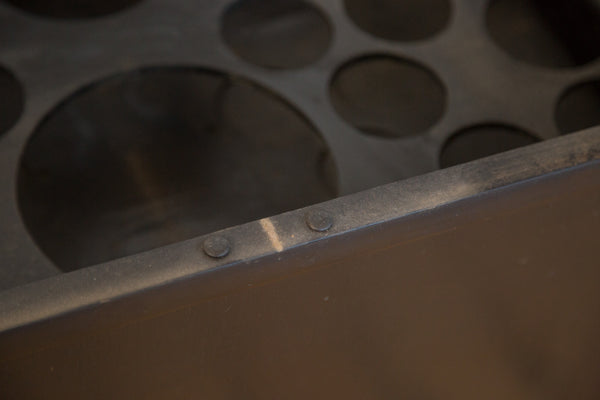
- #Prohibition style hidden bar table stand for free#
- #Prohibition style hidden bar table stand password#
- #Prohibition style hidden bar table stand free#
Check In to The Old Ship Inn Hackney, Step Out to Shoreditch, London

In other words, this place screams speakeasy, but it screams it very quietly. Members receive keys to The JubJub, which is accessed through a Narnia-style wardrobe.
#Prohibition style hidden bar table stand free#
Membership to The JubJub is free and is decided upon application and special invitation. The JubJub is reserved for members only and is open from 7 p.m.
#Prohibition style hidden bar table stand for free#
Seats can be reserved for free in the Back Lounge by calling the bar in advance. Walk-ins are welcome, but seating can only accommodate groups no larger than 8 people. Calloh Callay also was named one of The World’s 50 Best Bars in 2012, 2013, 20.Ĭalloh Callay’s Front Lounge is open from 6 p.m. The mixtures might sound crazy, but they are just crazy enough to have won the World’s Best Cocktail Menu at the 2012 Spirited Awards. All guests are welcome to enter The Front Bar and sample one of 23 signature cocktails, including a Rust & Oil, made with rum and lime, or a Nuts & Bolts, featuring scotch whisky flavored with maple, lemon, chocolate bitters and ginger ale. With cocktails as quirky as its Lewis Carroll-inspired décor, Calloh Callay in the Shoreditch district has been a favorite hidey-hole for charismatic Londoners since 2008. Location: You won’t find a sign, but you will find black double doors at 65 Rivington St, Hackney. Walk-ins are welcome but run the risk of not getting a table, so reservations are encouraged and can be made up to 90 days in advance.

Admission (paid to nightly performers) is free on Monday and Tuesday ₤5 on Wednesday and Thursday and ₤8 on Friday and Saturday. Will tonight’s special drink contain gin, peanut butter ice cubes or mozzarella cheese? And will it be served from a Japanese-style ceramic teapot or a copper vessel? Nothing is prohibited at Nightjar! (They serve Asian street food, too.) The bar has a faithful fan base who gather regularly to sample the bar staff’s old school and outrageous cocktails. (Though, you’d never know it from the drab entryway.) Guests can forget about being quiet at this low-lit juke joint, as Nightjar features live swing and jazz music every night. With serving vessels as unique as the concoctions inside them, Nightjar makes a splash when it comes to speakeasies. Location: Walk down Old Street and enter the boring-looking door at 129 City Rd, Hoxton. Speakeasy bars may not be known for their hush-hush atmospheres and bathtub brews anymore, but some establishments, particularly in Europe where the moniker began, still maintain underground bar traditions of secret doorways, quiet entertainment, and of course, one-of-a-kind cocktails – that thankfully don’t start in the family bathtub!
#Prohibition style hidden bar table stand password#
Most bars had hidden entryways and required patrons to know a password to gain entrance, and all required civility and silence. While the prohibition years are considered a rather dark period in America – due to constant police raids, segregation laws and illegal activities – speakeasies offered a place for people of any gender or color to mingle freely without conflict.

The person on the other side of the wall would place a drink in the drawer and slide it back, keeping everyone’s identity a secret!

These speakeasies, also called blind tigers or blind pigs, were “holes in the wall” where patrons could order a drink by placing money in a drawer that was then slid into a hidden compartment. Some establishments never revealed an owner’s identity at all. In bigger cities like New York, the mafia is rumored to have run several popular speakeasies, often frequented by celebrities. Instead of selling the alcohol to customers, bar owners would charge entrance fees for sometimes-odd (but always quiet) attractions and performances. Because the sale and production of alcohol was forbidden, many shop owners started brewing their own whiskeys, gins and moonshines, and to keep their operations on the down-low, they often did the brewing in the bathtubs of their own homes. population didn’t take kindly to the new liquor laws, and underground shops and bars began popping up throughout the country. during the late 1800s and even more so between 19, when the sale of alcohol was strictly forbidden.


 0 kommentar(er)
0 kommentar(er)
